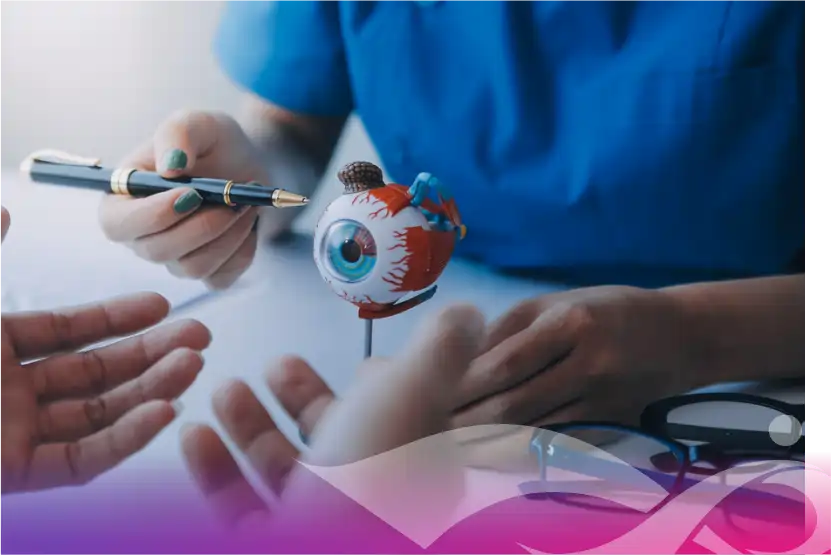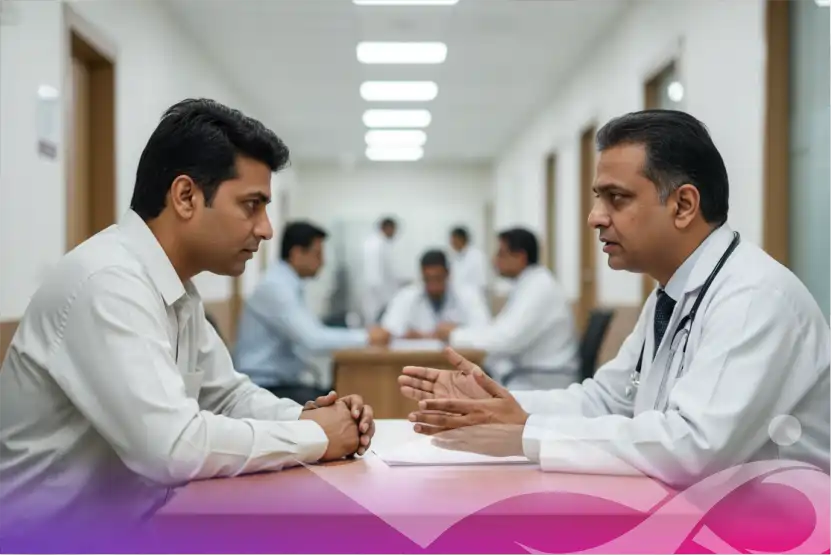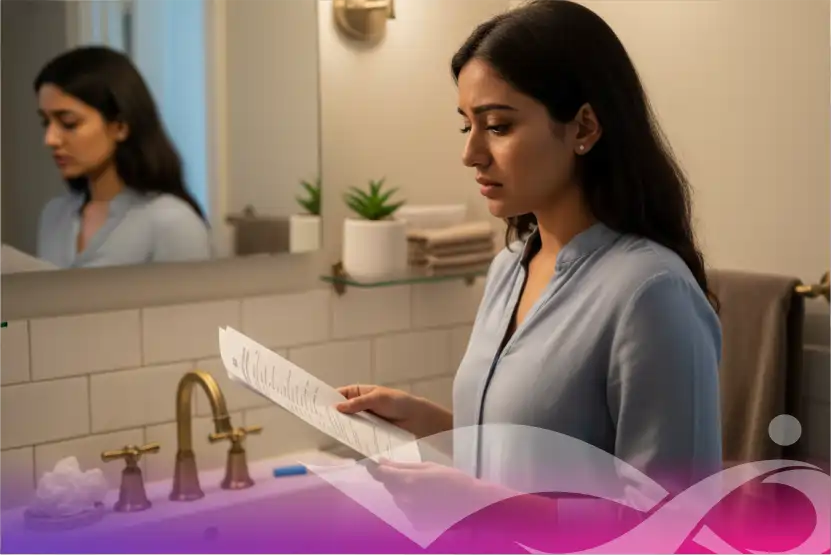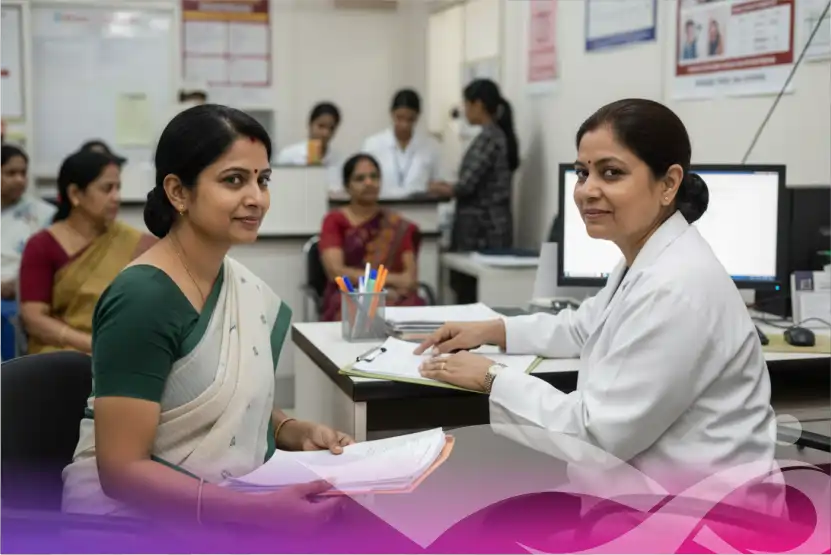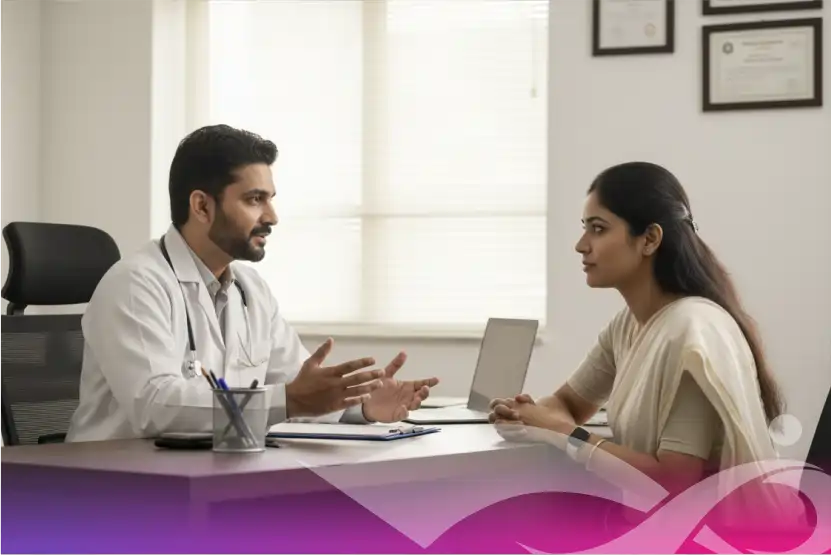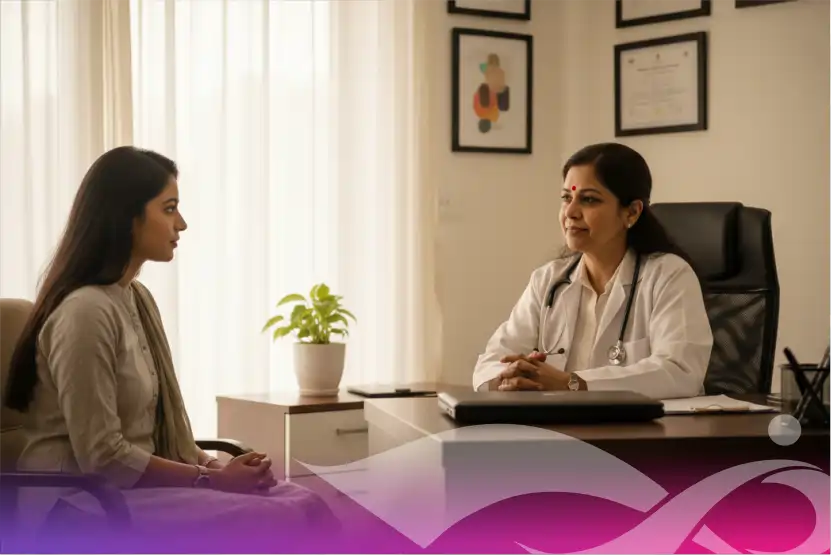The eyes can show you what's going on outside, but they can also show you signs of serious health problems, like cancer. While primary eye cancers are rare, understanding the eye cancer diagnosis methods is crucial for preserving both vision and overall well-being. This is because it can help you keep your vision and overall health. Our specialized ophthalmic oncology team at the International Oncology Cancer Institute (IOCI) uses a number of cutting-edge methods to accurately find and describe eye tumours and give quick and effective treatment.
How Eye Exams Detect Cancer Early: Essential Tools and Techniques
Eye cancer can grow in the eyeball itself (intraocular melanoma, retinoblastoma in children), the eyelid, the conjunctiva, or the orbit (the tissues around the eyeball). Because symptoms are often mild or mistaken for less serious eye problems, a full diagnostic approach is necessary.
The first step in the diagnostic process is usually a thorough eye exam by an ophthalmologist, especially one who specializes in cancer. This full exam is much more thorough than a typical vision test. Some important ways to diagnose are:
- Ophthalmoscopy (dilated eye exam): The ophthalmologist uses an ophthalmoscope, which is a lighted tool, to look inside the eye and check the retina, optic nerve, and other internal parts after putting drops in the eyes to make the pupils bigger. This lets them see any unusual masses, lesions, or changes in blood vessels.
- Slit-Lamp Examination: This tool shines a high-intensity light on the front and inside of the eye to create a three-dimensional, magnified view of the eyelids, conjunctiva, iris, lens, and cornea. It helps find tumours on the front or surface of the eye.
- Fundus Photography: Taking close-up pictures of the back of the eye lets you keep track of any lesions over time, which is important for seeing changes or growth.
- Ocular Ultrasound (B-scan): This test uses sound waves to make pictures of the eye's internal structures without cutting into them. When internal bleeding or clouding makes it hard to see tumours with an ophthalmoscope, this is especially helpful.
- Fluorescein Angiography: A dye is injected into a vein in the arm, and the dye moves to the blood vessels in the eye. A special camera takes pictures of the dye as it moves through the vessels. These pictures show any unusual blood vessel patterns that are linked to tumours.
Beyond the Eye Exam: Imaging and Biopsy for Confirming Eye Cancer
In addition to these visual tests, more tests may be needed to confirm the diagnosis and find out how big the tumour is:
- Imaging Scans (CT, MRI): If a tumour is suspected or its full extent needs to be determined, CT (Computerized Tomography) or MRI (Magnetic Resonance Imaging) scans of the eye and orbital structures can provide detailed cross-sectional images that show the size, exact location, and whether the tumour has spread to nearby tissues or possibly to the brain.
- Biopsy: A biopsy is the most reliable way to confirm cancer, even though it is not always necessary for intraocular melanoma (which is often diagnosed by imaging and clinical appearance). This can be done with a fine needle or surgery.
The importance of regular cancer screenings, though not specific to the eye for the general population, translates into the critical need for routine comprehensive eye exams. During these tests, eye cancers are often found by accident, especially in people who are more likely to get them or who have mild vision problems. This underscores why early detection saves lives in cancer. Finding eye cancer early is very important for both getting the right treatment and keeping your vision and, in some cases, the eye itself alive. To give patients the best possible prognosis, IOCI's integrated oncology approach brings together the expertise of ophthalmic oncologists, radiation oncologists, and medical oncologists. This way, every patient who is thought to have eye cancer gets a full diagnostic work-up and a treatment plan that is unique to them.
Consult us at any of our locations—across IOCI Noida, Greater Noida, Mumbai, Indore, Aurangabad, Agartala, Saharanpur, Kanpur and Jodhpur.






